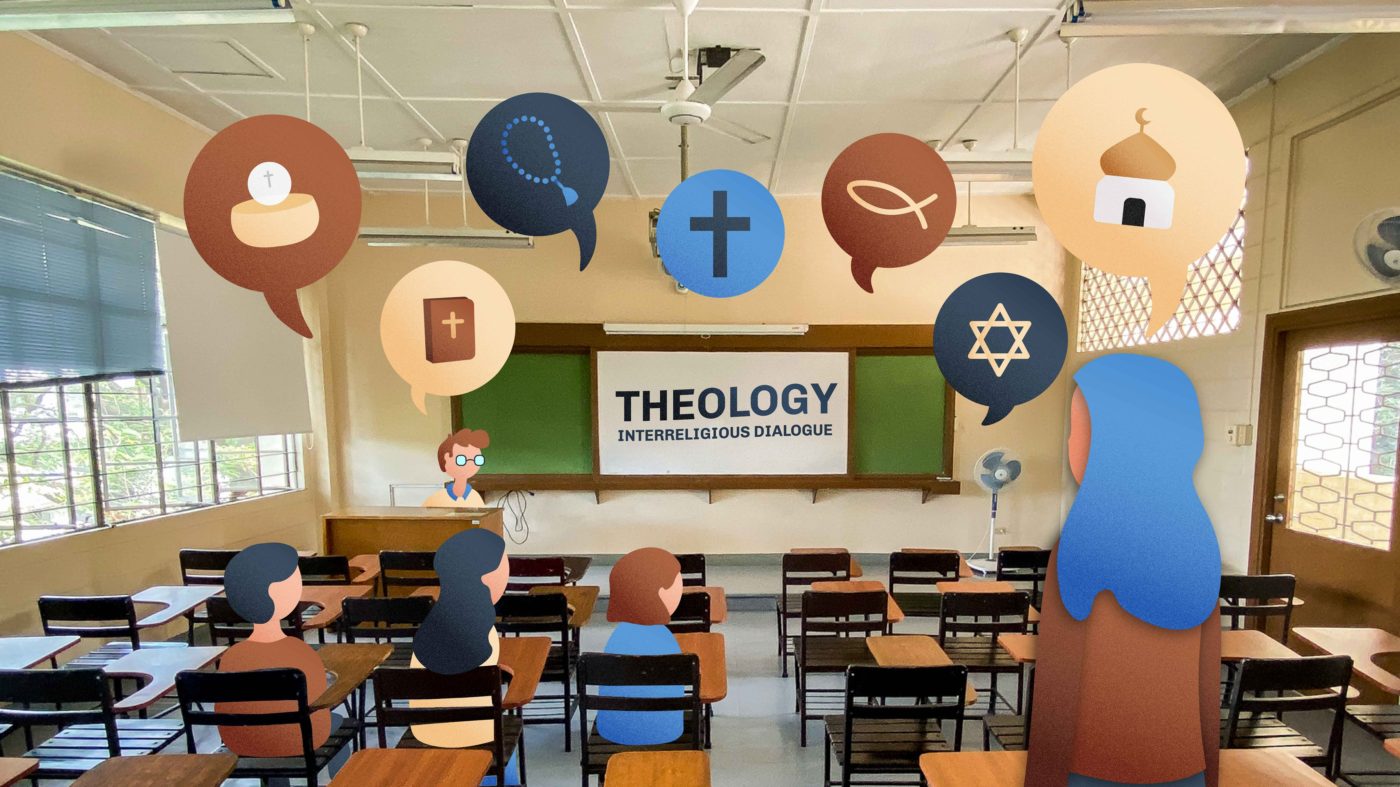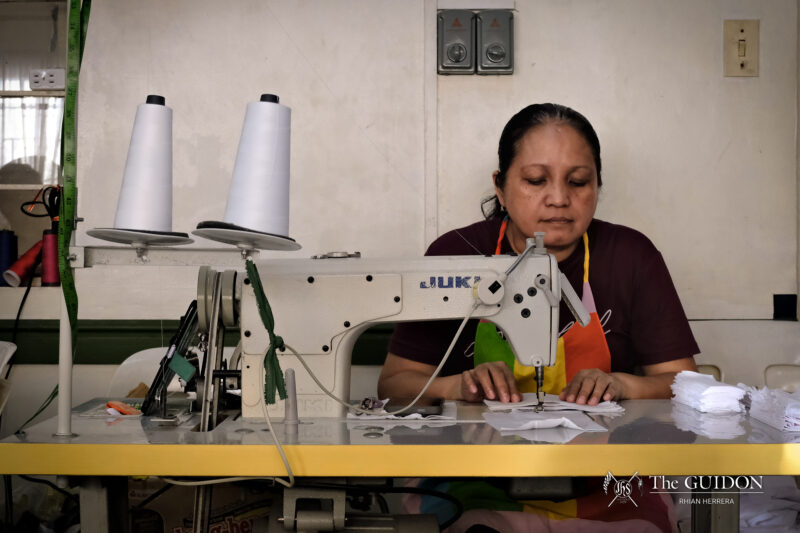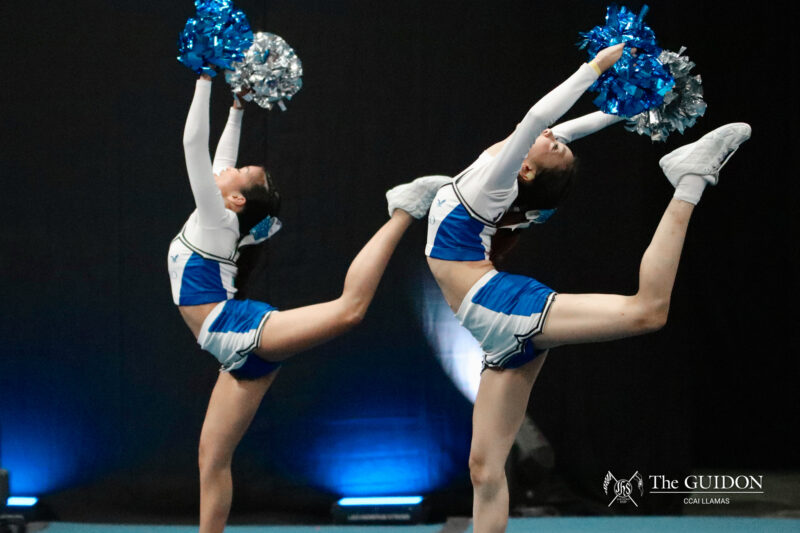ONE OF the principal attributes of the Ateneo is an education that is rooted deeply and intimately with the humanities and liberal arts. The simple reason behind the formation of this curriculum is that an Ateneo education entails the care and development of the whole person. At the core of Ateneo’s efforts towards holistic formation are the mandatory core subjects, which include history, philosophy, and theology.
While Ateneo theology is rooted firmly in Catholic and Christian teachings, one aspect that must be taken into consideration is the multi-faith dynamic of the University. Students of different faiths (or non-faiths) make up Ateneo’s population, which prompts us to wonder how they fare in classes that are typically associated with a religious orientation that is different from their own. More importantly, the reality of a multi-faith community calls for a closer look at the school’s existing theology curriculum and how inclusive it strives to be.
A Catholic university for all
The Loyola Schools campus houses not only Catholics, but Muslims, Hindus, Buddhists, and agnostics as well. Jayce Caro (2 BS MGT), for instance, practices Buddhism. Caro understandably had apprehensions when he decided to spend his college years in a university well-known for its Catholic roots.
“There’s a fear of…‘Oh no! They’re gonna judge me. I’m the Buddhist,’” he says. Although he came from a Christian background and family, Caro’s chosen religion still made him fear the prospect of being the “outlier” in a Catholic school.
However, this isn’t always the case. For Sparsha Sreedhar (4 BS MGT), a practicing Hindu, Ateneo was just another Catholic school—no different from the schools she enrolled in for her primary and secondary education.
Despite the difference in their perspectives, Caro and Sreedhar share similar experiences in learning about a faith that isn’t their own. Sreedhar, for instance, initially found it difficult, especially in her younger years. “[It was a] struggle in grade school because it was very objective and memorization based,” she explains.
However, she adds that learning about religion in high school and college became “more fun” since the focus shifted to more reflection-based activities. Sreedhar’s teachers were more open to the integration of her own faith in papers and other class outputs.
Caro’s sentiments about his first theology class in the Ateneo THEO 11: Faith, Spirituality, and the Church mirror that of Sreedhar’s. At that time, he was taught by Theology Department Instructor Simone Lorenzo-Pecson, who Caro describes to have been “genuinely curious about different religions.” He particularly appreciates how Lorenzo-Pecson tried her best to make the lessons relatable for non-Christians by integrating the insights of different religions into her lectures.
However, Caro and Sreedhar acknowledge that others still have less-than-ideal experiences when it comes to Ateneo theology. “What I heard from other [theology] classes [is] shine-shove down their throats yung Catholic beliefs…[it’s all] memorize this, memorize that,” Caro shares. Sreedhar adds that some of her theology classes were also very traditional, in which “everything [was] based on the Bible.”
Logic and conversations
Ateneo’s multi-faith reality has caused some to question the necessity of theology as a required subject, especially given its focus on Catholic teaching rather than religion as a whole.
In response to this, Theology Department Assistant Professor Ray Aguas asserts that theology is “an academic subject in a Catholic university…You don’t have to believe in the Catholic faith—but you have to be able to explain what the Catholic faith believes.”
A common argument that follows is that theology could then be made an optional course. Aguas disagrees with this, saying, “It’s the same reason why we won’t allow you to not take up Math 10 for the reason that you don’t like math.”
Interreligious dialogue advocate and Interdisciplinary Studies Department Lecturer Maria Africa agrees and emphasizes that Ateneo is a Catholic university, thus theology should still be a mandatory class. However, she emphasizes the need for theology to be taught in a way that does not promote fear among students who want to engage in critical discourse—whether about the Catholic faith or other religions.
“But more than that, theology must also let you see why the Catholic faith is logical and makes sense,” Aguas adds.
On a similar note, Africa notes that students must be aware of the courses they are mandated to study before enrolling in a school. She adds that the challenge is not accommodating each faith by allowing them to forgo theology, but to cultivate a community of empathy, regardless of the difference in religion.
“We’re all living in one planet together, and we have to collaborate and bring to the forth the highest teachings and ideals of our respective traditions to respond to the challenges of our time,” she asserts. “We cannot afford to be complacent in Ateneo.”
Remedy for apathy
Despite student insights and faculty efforts, feelings of apprehension still persist among non-Catholic students when faced with the prospect of being immersed in a culture that is vastly different from theirs. Such is the case of Aina Pandapatan (1 AB POS), who identifies as a Muslim. “It’s not a matter of me and how I react to these people—it’s how would these people react to me,” she says, explaining some of the fears she had about declaring her faith in the University.
“If someone asks me about my religion, I’ll answer. Pero if it doesn’t really come up, I won’t say it because I don’t want people kasi to think of me…‘There’s that Muslim talking about her religion, will she ever stop?’” she says.
Pandapatan’s reservations are much like Caro’s initial fear of judgement. However, Africa shares that she has not received negative feedback about the University environment from students of non-Catholic faiths.
“Students who enroll here have families that are not afraid of sending their students to a non-Muslim school,” Africa shares. To her, the ultimate goal of theological education is to help in the formation of a “larger global citizenship” where persons of different religions can come together to form a more vibrant Atenean community.
To move towards this collective goal for the University, Caro encourages professors to be more “accommodating and dynamic” in their theology classes. He asserts the importance of not imposing the professor’s personal beliefs onto their students, as it may discourage them from opening up about what they believe in.
Sreedhar adds that when it comes to class requirements such as reflection papers or oral exams, professors should be more open to students who wish to draw a connection between their own religion and Catholic teachings.
At the end of the day, theology is another academic subject that allows students to view and reflect on faith in more nuanced and holistic respects. The core subject is meant to serve as an avenue for students, regardless of faith, to learn and critically assess Catholic teachings in relation to their own contexts and the society they live in. In turn, this cultivation of acceptance through respectful dialogue allows individuals to adapt a more appreciative understanding of the plurality of the world which Ateneans, for 160 years now, has been beckoned to service.







